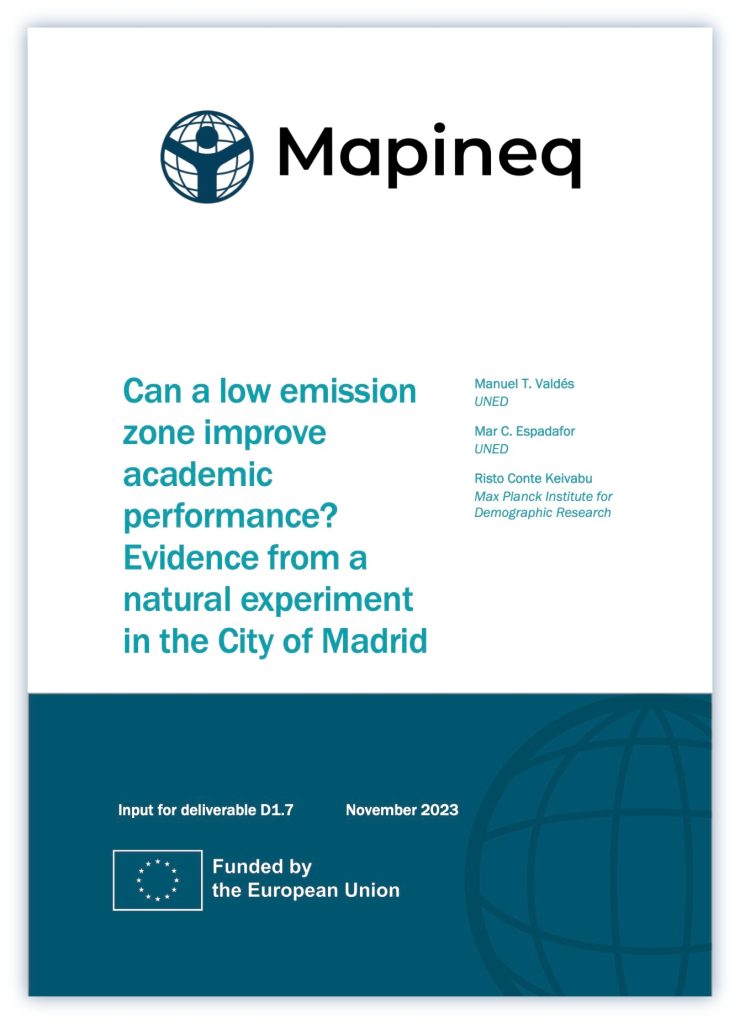Can a low emission zone improve academic performance? Evidence from a natural experiment in the City of Madrid
In late 2018, the government of Madrid instituted a low emission zone (LEZ) in the central district of the city, aiming primarily to alleviate traffic-related emissions and enhance air quality. Extensive research has documented the adverse effects of air pollution on academic performance. Consequently, the success of Madrid’s LEZ in reducing traffic-related emissions could potentially translate into improved performance among students schooled in the designated area. Through a difference-in-differences design, we demonstrate the policy’s effectiveness in improving air quality during the four years following its implementation. Subsequently, we show a noteworthy increase of 0.17 standard deviations in the average EvAU scores (high-stakes examinations for university admittance) of high schools within the LEZ, a crucial advantage for gaining entry into the most competitive university programs. Importantly, our findings reveal positive spillover effects in the surroundings of the LEZ area and a larger effect the longer and earlier the exposure to cleaner air. In sum, our study offers compelling empirical evidence of the beneficial educational impacts resulting from the implementation of a low emission zone successful in improving air quality.
By Manuel T. Valdés, Mar C. Espadafor and Risto Conte Keivabu.

Low emission zones (LEZ) are a popular measure to reduce air pollution in European cities. Madrid’s LEZ considerably reduced air pollution levels in the area four years following its implementation

Madrid’s LEZ influenced the academic performance of students in both the area and the neighbouring region within 0.5 km. Students in this vicinity demonstrated higher scores in the high-stakes university entrance examinations (EvAU)

The positive effects of the Madrid’s LEZ consistently increased over time, suggesting cumulative benefits from longer exposure to improved air quality

